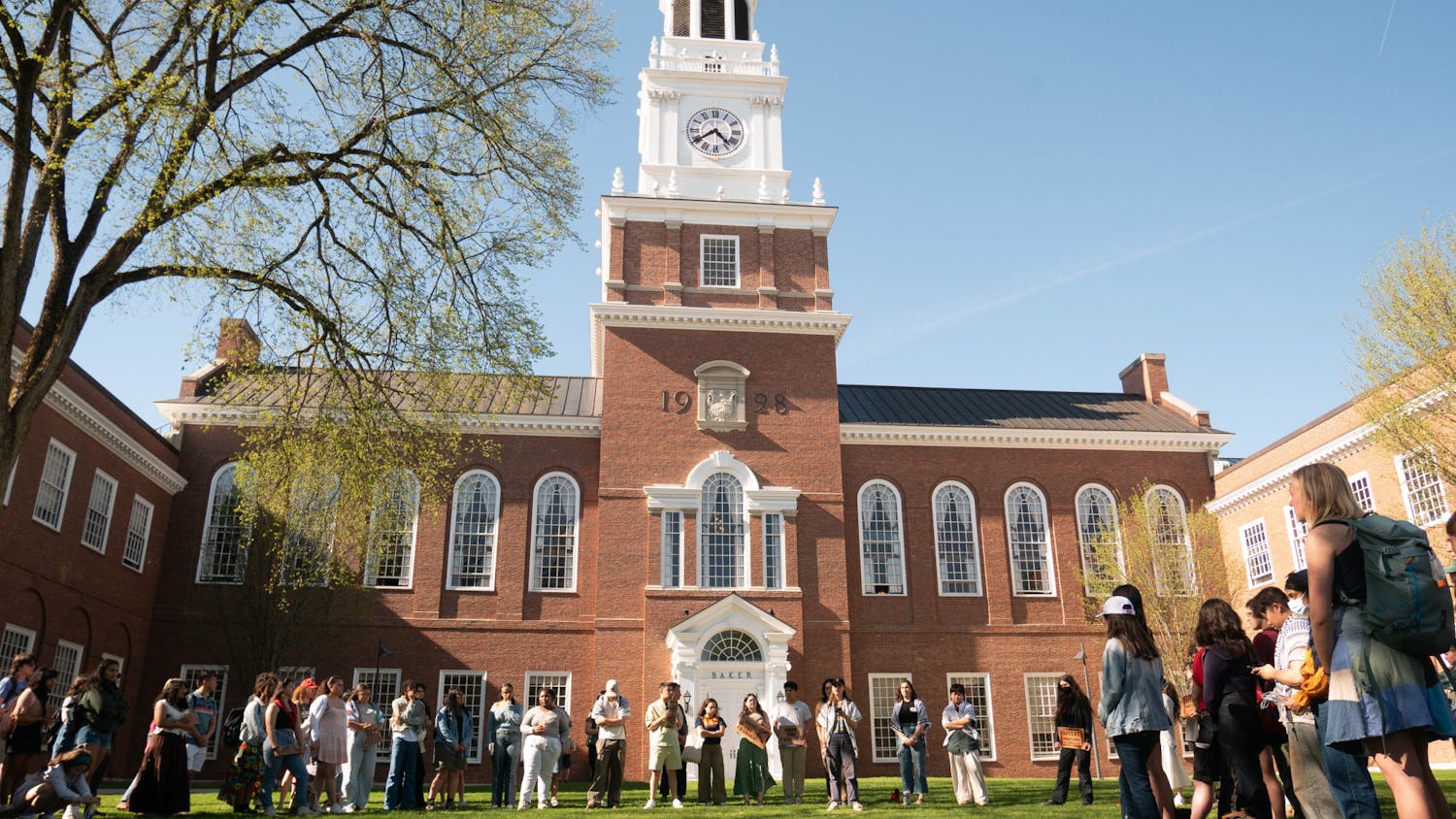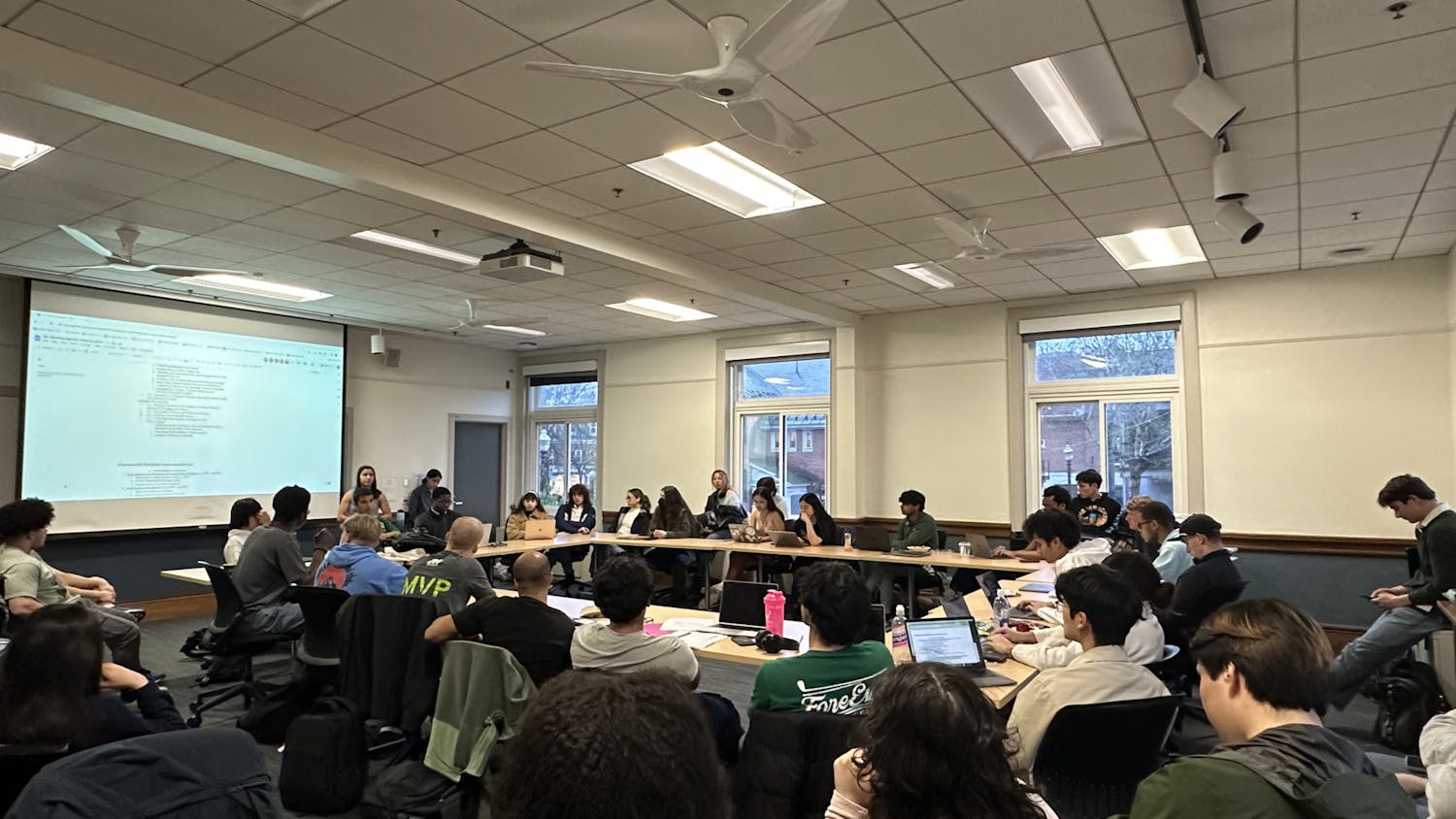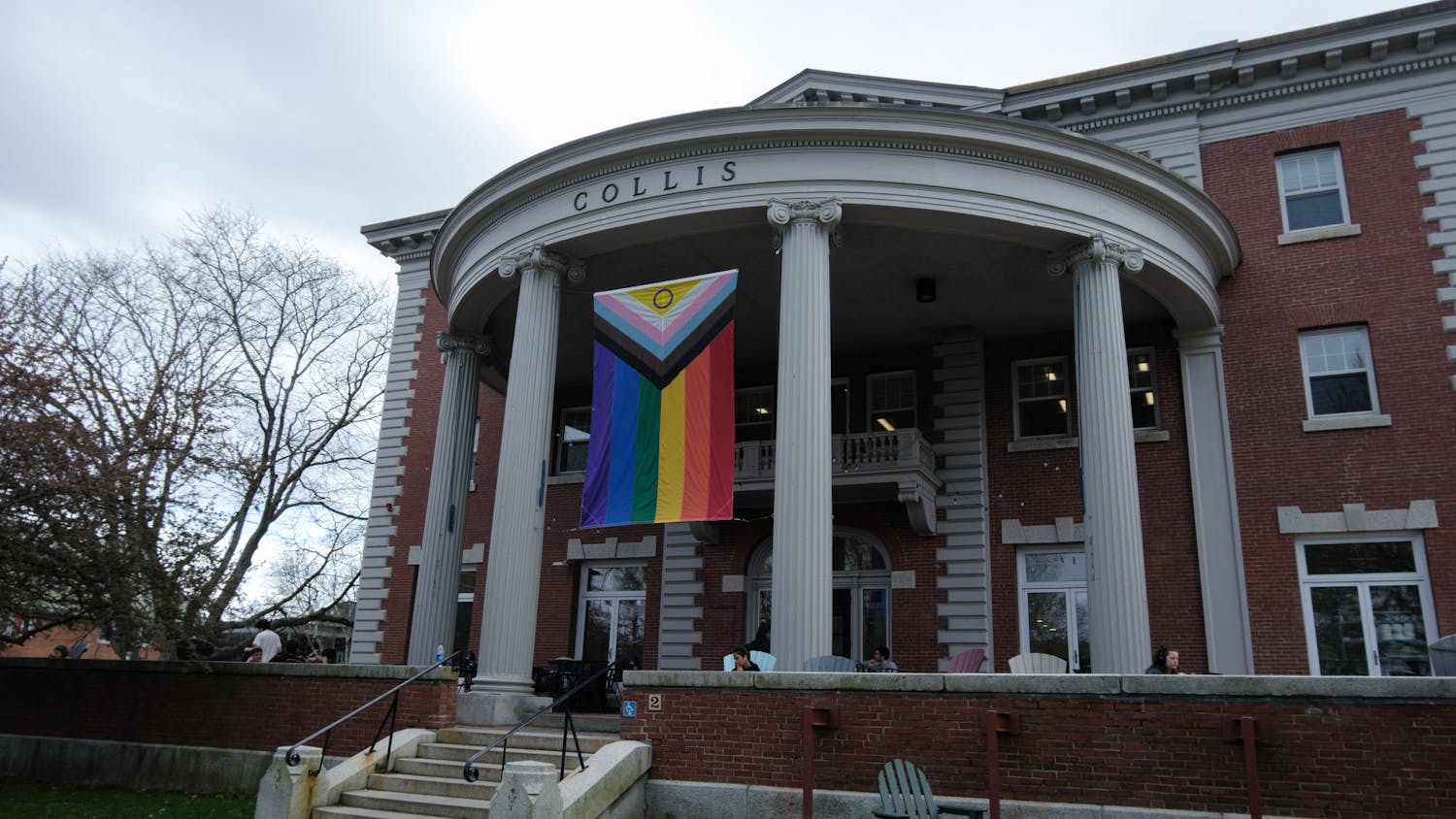The Foundation for Individual Rights in Education has changed Dartmouth’s speech code rating from “green light” to “yellow light” in November. The non-partisan organization believes the College’s bias reporting policies could be used to suppress free speech, FIRE policy research director Samantha Harris said.
FIRE’s goal is to protect the free speech and due process rights of students and faculty members on college campuses through educational outreach, individual case resolution and a speech code database, Harris said. Before Dartmouth’s FIRE rating changed in November 2015, Dartmouth had been rated as green light school since 2005. Before 2005, Dartmouth was considered a “red light” school when Zeta Psi fraternity was derecognized for disseminating an internal newsletter that personally insulted a number of female students. FIRE deemed then-College President Jim Wright’s statements supporting the derecognition an effective “speech code” for “elevating ‘feelings’ over free expression.”
A green light rating means a school does not have speech codes that restrict protected speech, Harris said. red light means an institution has at least one policy that FIRE believes both clearly and substantially restricts free speech, she said. A yellow light rating could refer to policies that restrict narrower categories of speech or are vague enough to be vulnerable to abuse, she said.
“A ban on offensive speech campus-wide would get a red light, whereas a ban on speech like posters in residence halls, for example, would get the yellow light because the amount of speech affected is much less,” she said.
Dartmouth’s bias reporting policies fall under the yellow light category because of its broad language, Harris said.
The College defines a bias-related incident as “behavior which constitutes an expression of hostility against the person or property of another” over an aspect of a person’s identity, such as gender, race, sexual orientation and disability, according to the Office of Pluralism and Leadership’s website.
“An ‘expression of hostility’ could mean almost anything,” Harris said. “What one defines as hostile is very subjective. Some expressions of hostility might actually involve threats or harassment, but some might just be unpleasant or offensive remarks that, while undesirable, are not something that the university should officially be investigating or punishing.”
Harris said that to regain a green light rating, at a minimum the College would need to state in the bias incident policy that students will not be disciplined under the policy and the information will be used for reporting and statistical purposes only.
“If the College wants to simply try to collect information on these kinds of incidents so they can respond with more speech or educational programming or things like that, they’re within their right to do so,” she said. “There’s nothing wrong necessarily with a policy like this as long as it’s absolutely clear to students that they’re not going to be disciplined simply for saying something that someone else finds offensive or hostile.”
Harris said that more generally, she is concerned about a campus culture where the administration encourages students to report on one another’s speech,
In an email statement, college spokesperson Diana Lawrence cited Dartmouth’s statement on freedom of expression and dissent, which states that the College “prizes and defends the right of free speech.”
Assistant dean and director of case management Kristi Clemens said the College’s bias incident reporting system was initially created in January 2013 as a “climate check” — a way to get a pulse on what was happening on campus after hours.
“Students were feeling like they only had formal reporting mechanisms,” she said. “They could report to Safety and Security, they could report to Judicial Affairs, but we know that microaggressions happen all the time.”
Reports go to the entire bias incident reporting team, which includes Safety and Security, Judicial Affairs, OPAL, the dean on call and Clemens. When a report comes in, it goes through “triage” and is directed to the appropriate department based on severity and immediacy, Clemens said. Every report receives a response, Clemens said, and she will often reach out to all parties involved in the incident to facilitate conversation and some sort of resolution.
OPAL’s website notes that “bias-related incidents, while abhorrent and intolerable, do not meet the necessary elements required to prove a crime.”
Clemens said most reports do not result in judicial affairs action — out of about 20 individual incidents reported each term, about one or two result in an investigation. At times, the team receives multiple reports about singular incidents, such as the Blackout demonstration this past fall, she said.
In November, students marched through Baker-Berry Library following a demonstration meant to show solidarity with black communities at Yale University and the University of Missouri. The protest sparked controversy, as allegations of physical assault emerged on social media outlets, including the anonymous messaging app Yik Yak. Several students filed bias incident reports with the College, though no official complaints of physical violence were made to the College at the time.
“We know that Dartmouth’s speech code is pretty liberal, and so some things are not able to be followed up judicially, but we do think that in our community it’s important to address speech that’s harmful, hateful and inappropriate to build a stronger Dartmouth community,” she said.
Harris said that FIRE first became aware of Dartmouth’s bias reporting policies in 2013 through media coverage of a racial harassment incident that occurred in the Class of 1953 Commons in January 2013. Two students reported that another person walked by them during lunchtime in ’53 Commons and verbally harassed them in what was thought to be mock Chinese. The organization was concerned that Dartmouth was considering disciplinary action on the basis of its bias incident policy, so FIRE reached out to express its concerns, Harris said.
“We received a response saying the student was not being punished, but Dartmouth never addressed our broader concerns about the policy itself,” she said.
FIRE wrote to Dartmouth again in 2015 after it was clear the policy would not be changed, Harris said.
“When Dartmouth stood by the policy, we decided we could no longer in good conscience call it a ‘green light’ school,” she said.
Clemens said her office does not work directly with FIRE and there are no current plans for modifying the bias reporting policy.
“We’re going to do what’s best, we think, for our students and engaging them in dialogue and creating a safe space for all students,” she said. “I don’t think that our process does anything that infringes on students’ rights. I think having developmental conversations with students is the point of my role and any student support staff member here on campus, and I don’t see us changing that process.”
Ulysses Smith, Title IX coordinator at Cornell University, wrote in an email that Cornell considers bias to be an “umbrella term” that includes acts of harassment and discrimination, though not all incidents reach the threshold for those offenses. Cornell’s bias assessment and review team is not an investigatory or disciplinary body, though if an incident does violate a university policy, it is referred to the office of the Judicial Administrator, Smith said.
FIRE also rates Cornell’s bias policy as yellow light as well. Smith said he is not aware of any instances when FIRE reached out to Cornell.
University of Oregon bias response team coordinator Maure Smith-Benanti said her team is “purely educational in nature” and deals with incidents that do not violate the law or the university’s code of conduct. Reporters have the option to submit a report solely for information, which means it will be included as statistical data in an annual report, or for action, she said. If a reporter requests action, the team can facilitate a conversation between parties involved to help resolve the issue, she said.
FIRE rates University of Oregon’s bias response team policy as green light, though the school overall is considered to be red light.
“We try to encourage our students that the best response to free speech that we find offensive is more speech,” Smith-Benanti said.



